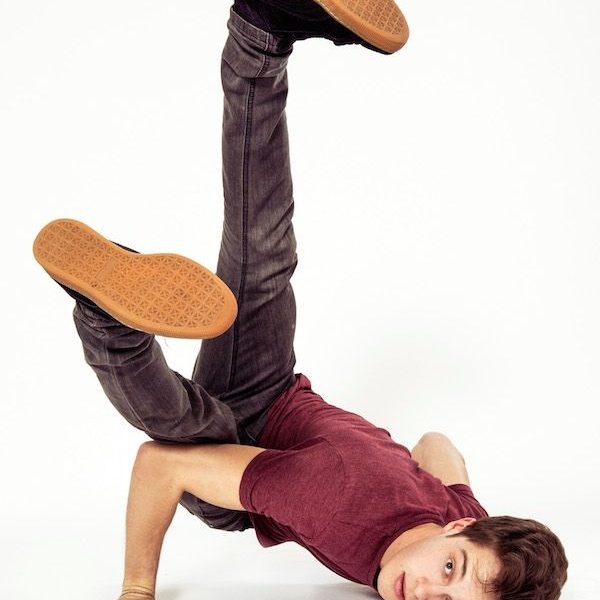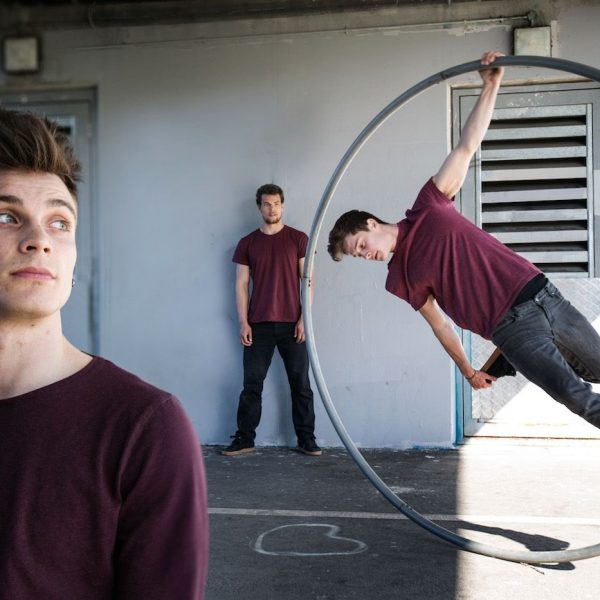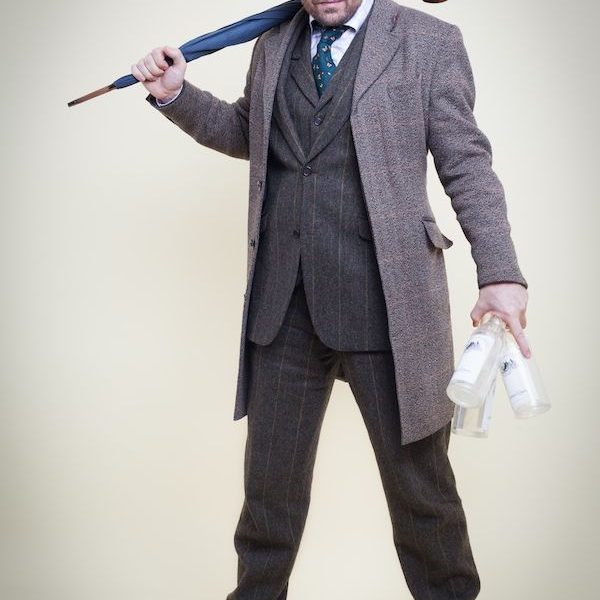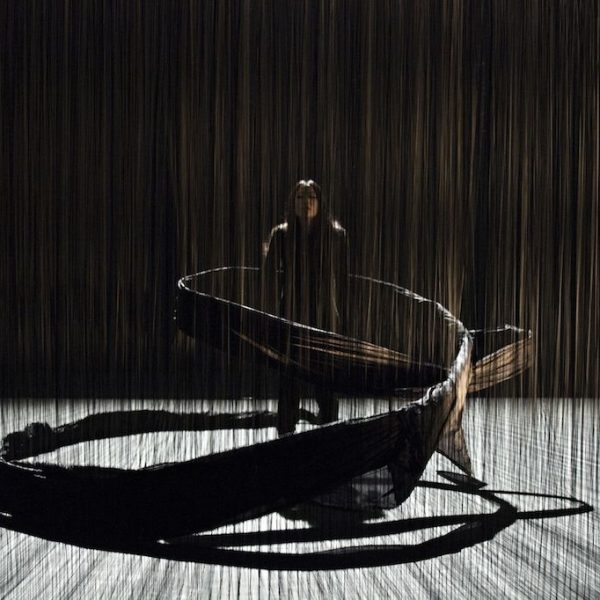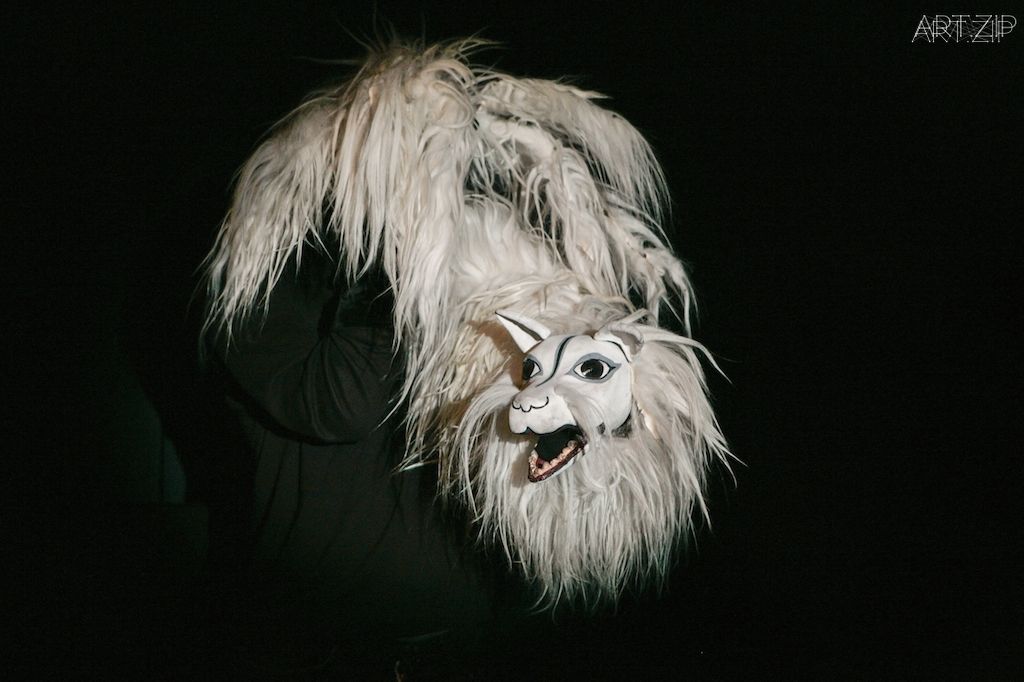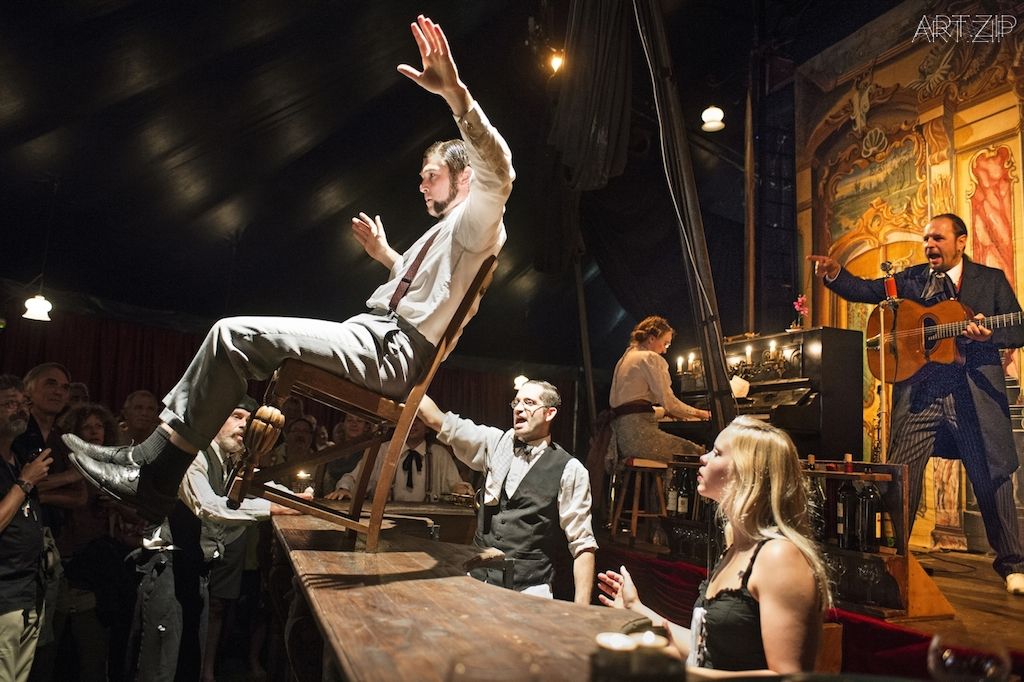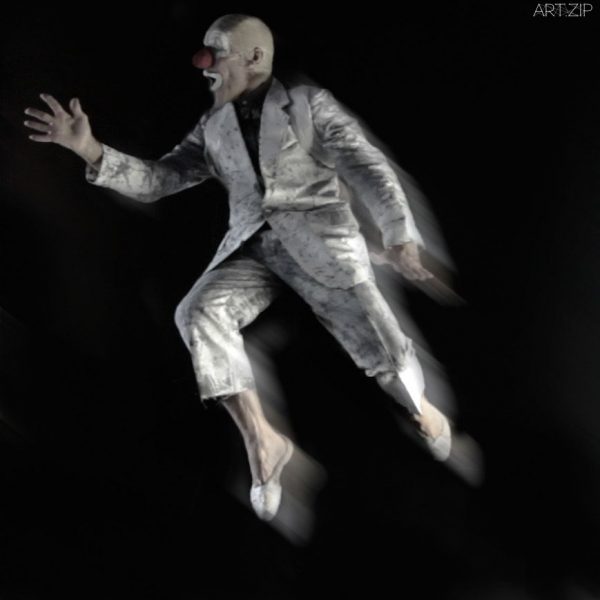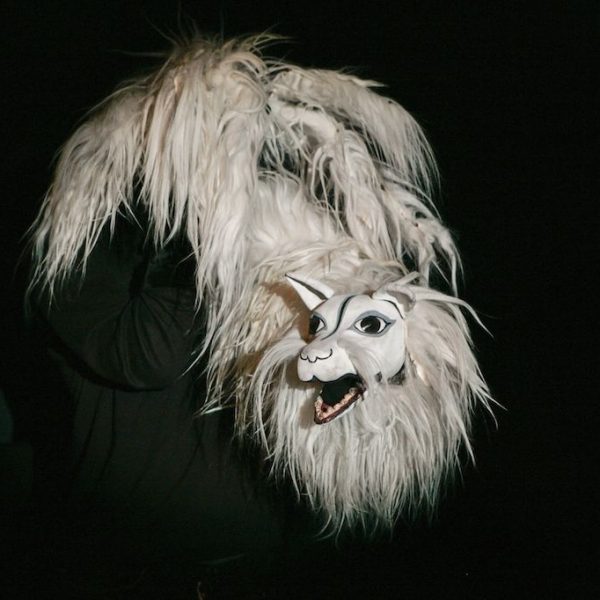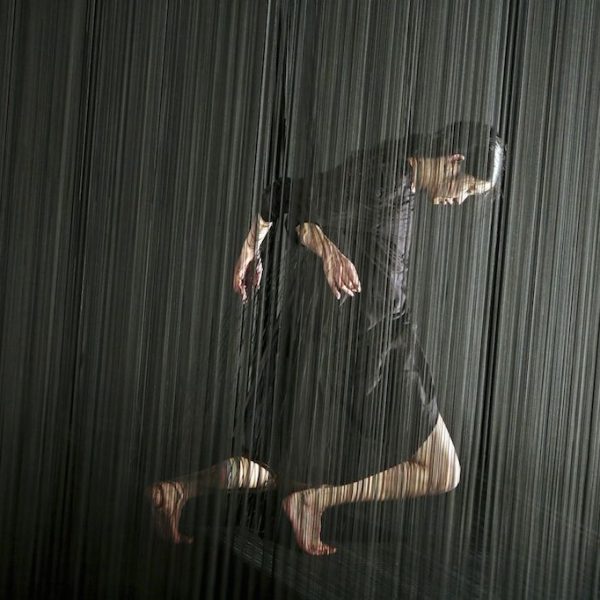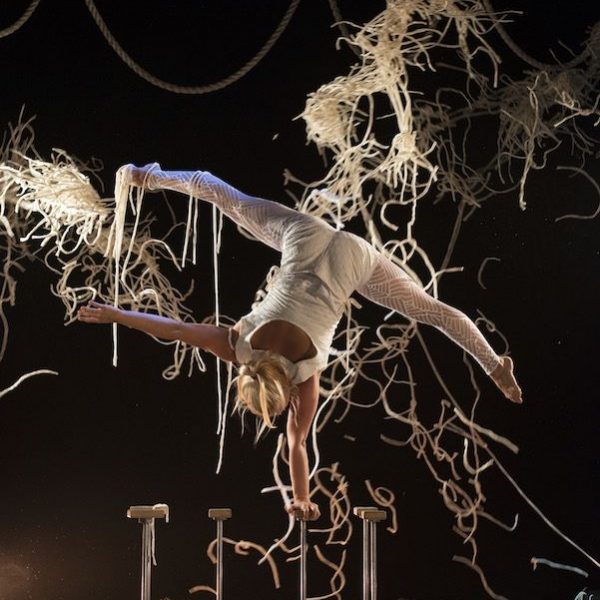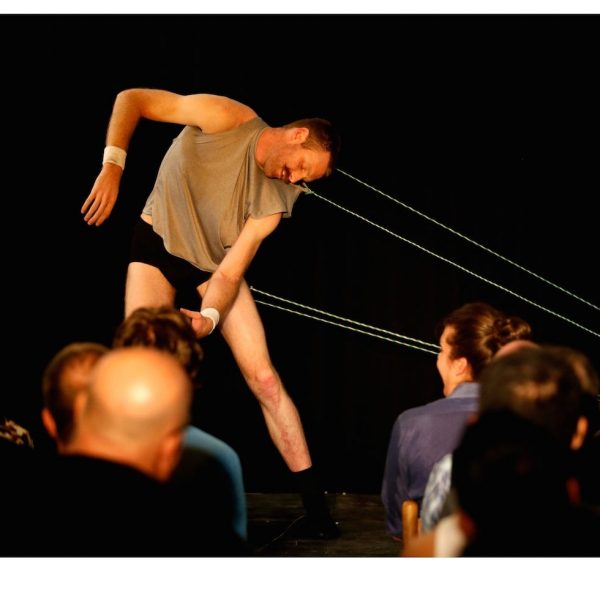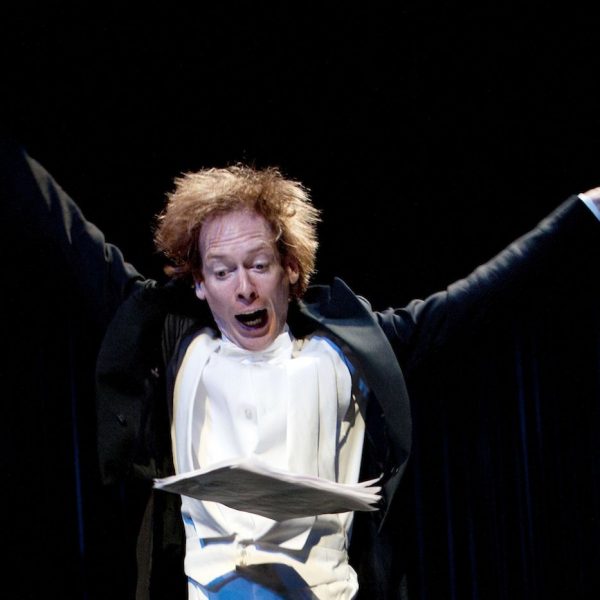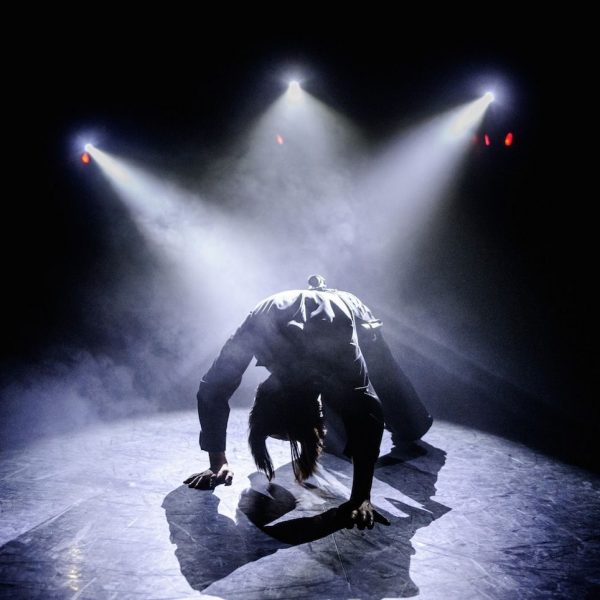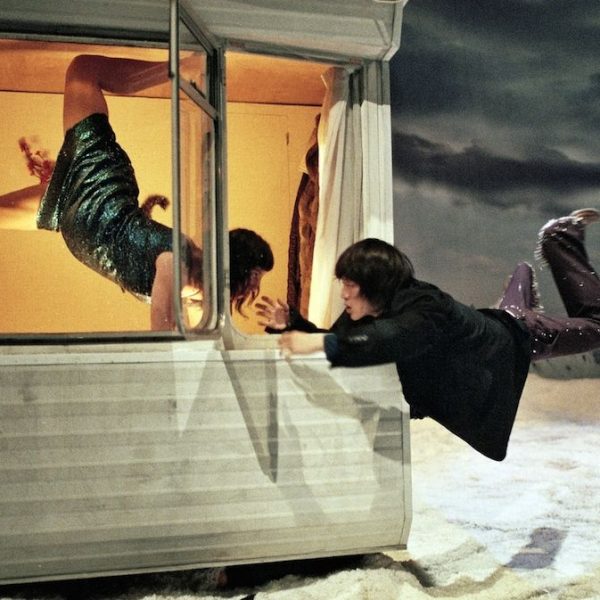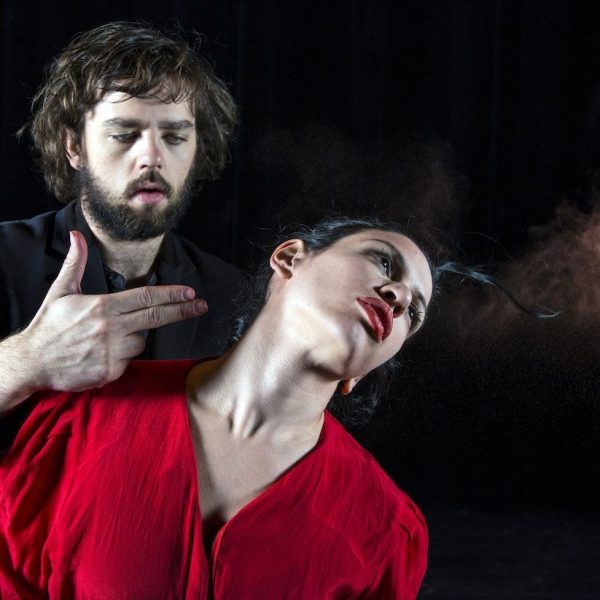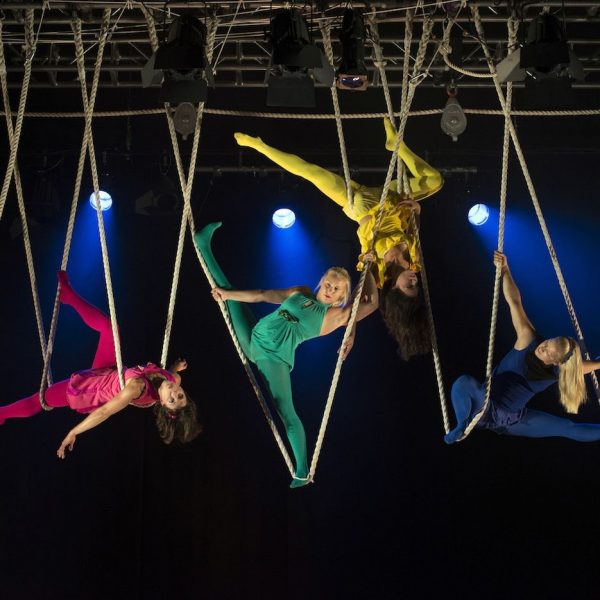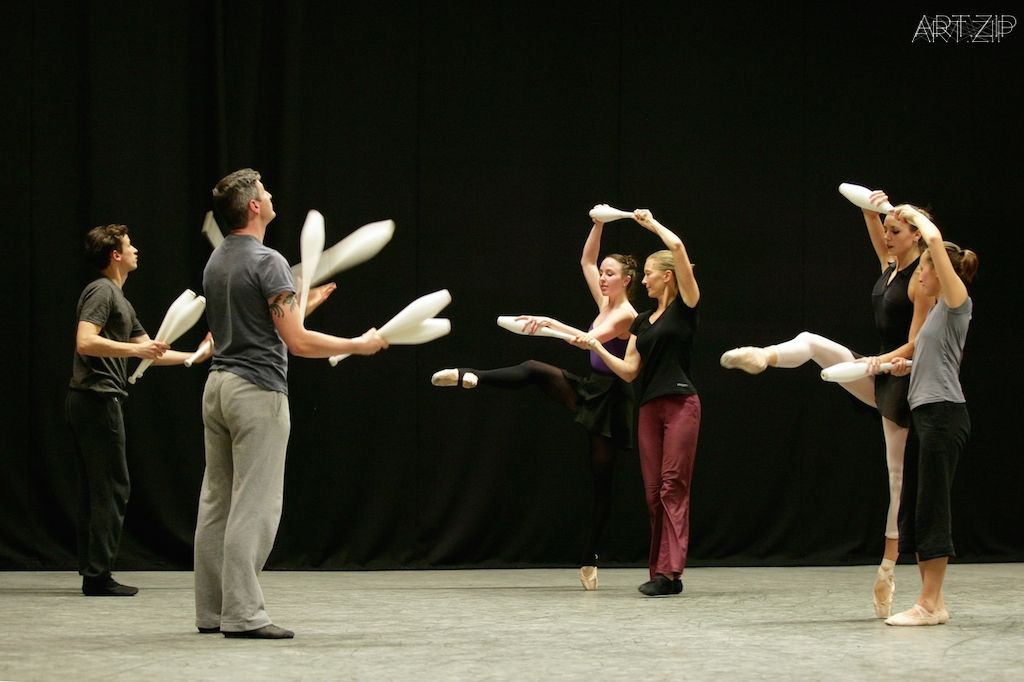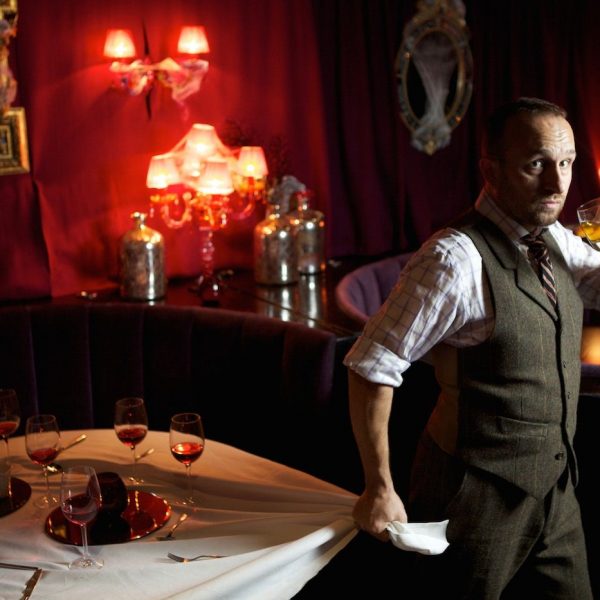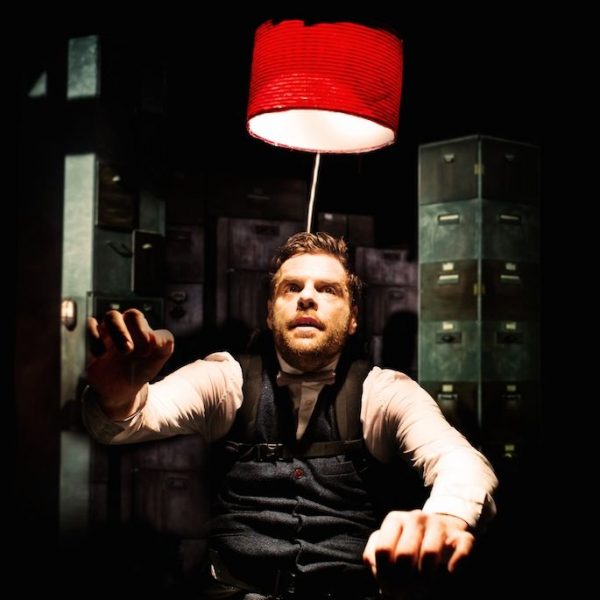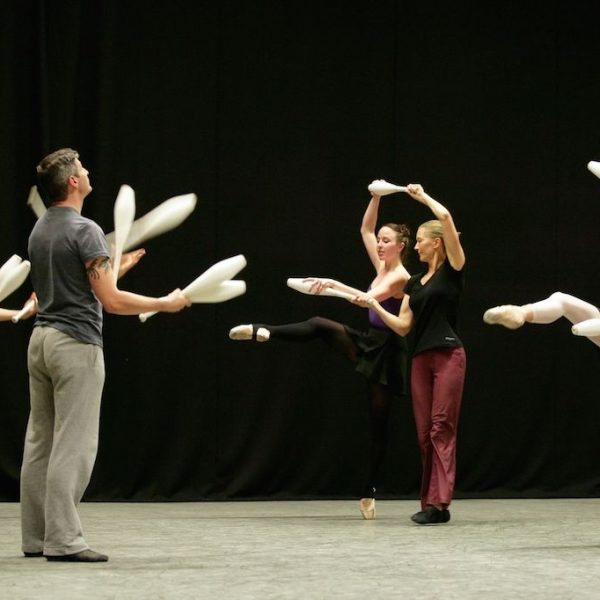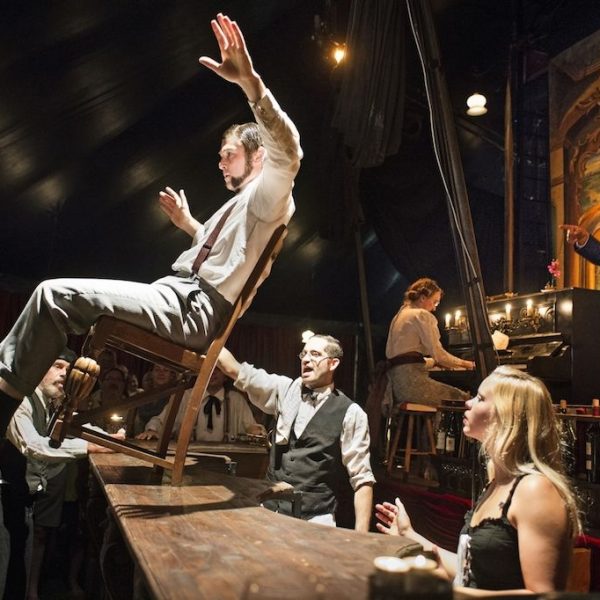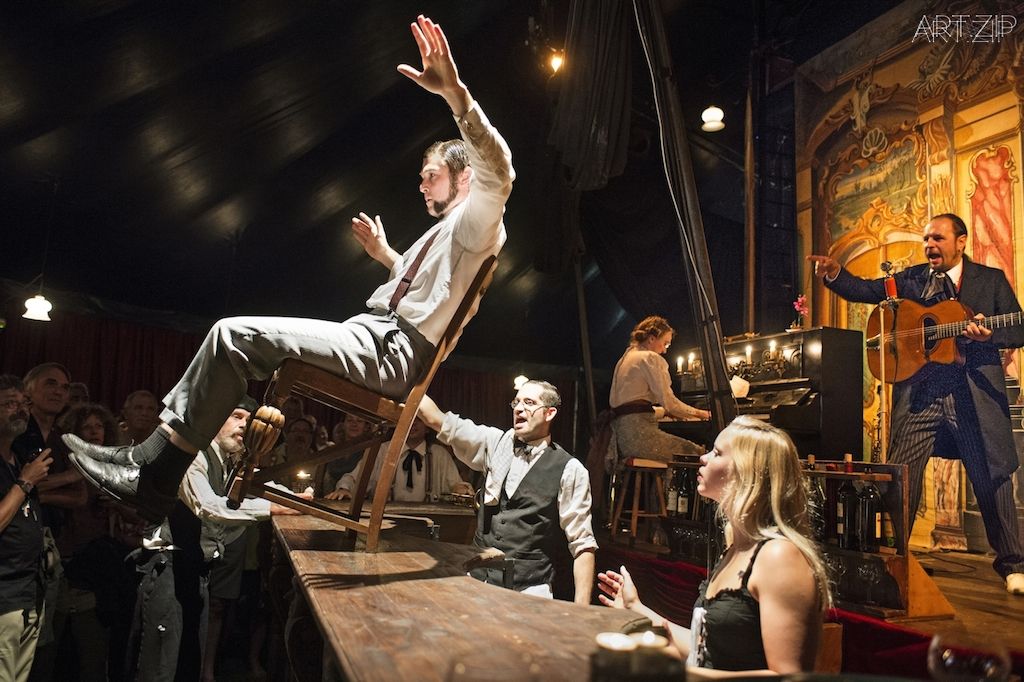
Text by: Joanna Dong / 撰文:董一燃
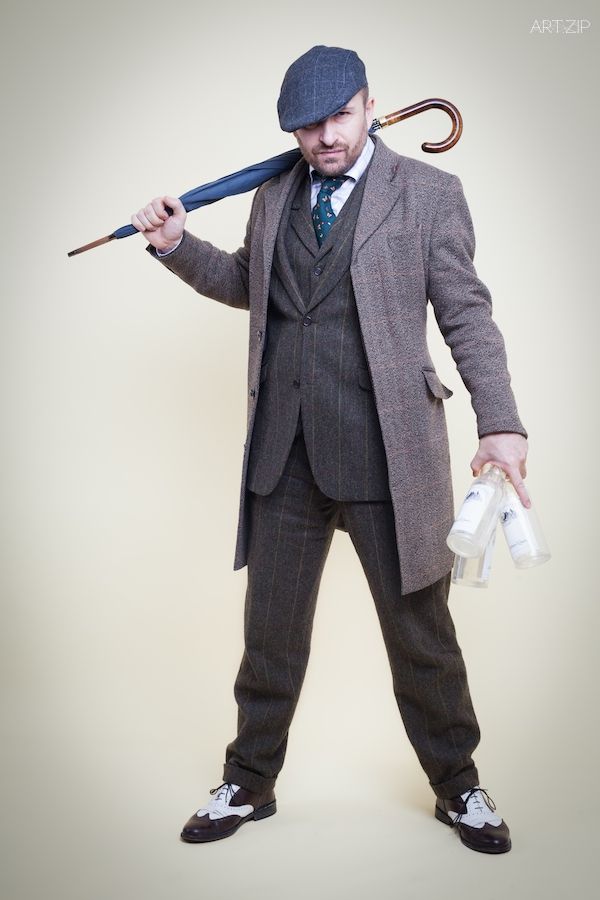 Joseph Seelig is co-founder and co-director of the annual London International Mime Festival. He was formerly international programme director of the Hong Kong Festival and artistic director of the New Zealand Festival. As the director of HQ Theatres and the Birmingham European (BE) Festival, Seelig also serves as consultant to Arts Council, Total Theatre and Jeunes Talents Cirque for his expertise in visual theatre. In 2008, Joseph Seelig was appointed Chevalier dans l’Ordre des Arts et des Lettres by the France Republic, and in 2011, Seelig was elected Honorary Fellows of the Royal Central School of Speech and Drama.
Joseph Seelig is co-founder and co-director of the annual London International Mime Festival. He was formerly international programme director of the Hong Kong Festival and artistic director of the New Zealand Festival. As the director of HQ Theatres and the Birmingham European (BE) Festival, Seelig also serves as consultant to Arts Council, Total Theatre and Jeunes Talents Cirque for his expertise in visual theatre. In 2008, Joseph Seelig was appointed Chevalier dans l’Ordre des Arts et des Lettres by the France Republic, and in 2011, Seelig was elected Honorary Fellows of the Royal Central School of Speech and Drama.
約瑟夫·塞利格(Joseph Seelig)是一年一度的當代視覺劇場演出季——倫敦國際默劇節(London International Mime Festival 后稱LIMF)的創始人和聯合藝術總監。他也曾任劇場經理、藝術家經紀人、歌劇制作人、巡演演出商等。他同時還擔任伯明翰歐洲藝術節主席(Birmingham European (BE) Festival)並且是英國第二大區域性戲劇運營商HQ戲劇公司的聯合創始人。他還擔任很多藝術組織視覺藝術方面的顧問,例如:英國藝術委員會(Arts Council), 全劇場(Total Theatre)以及青年人才計劃(Jeunes Talents Cirque)。他曾在2008年榮獲國際戲劇協會卓越成就獎(International Theatre Institute Award for Excellence),並且在同年榮獲法國文化藝術騎士勛章(Chevalier dans l’Ordre des Arts et des Lettres)。2011年被授予倫敦大學中央戲劇與演講學院(Central School of Speech & Drama)榮譽學者。
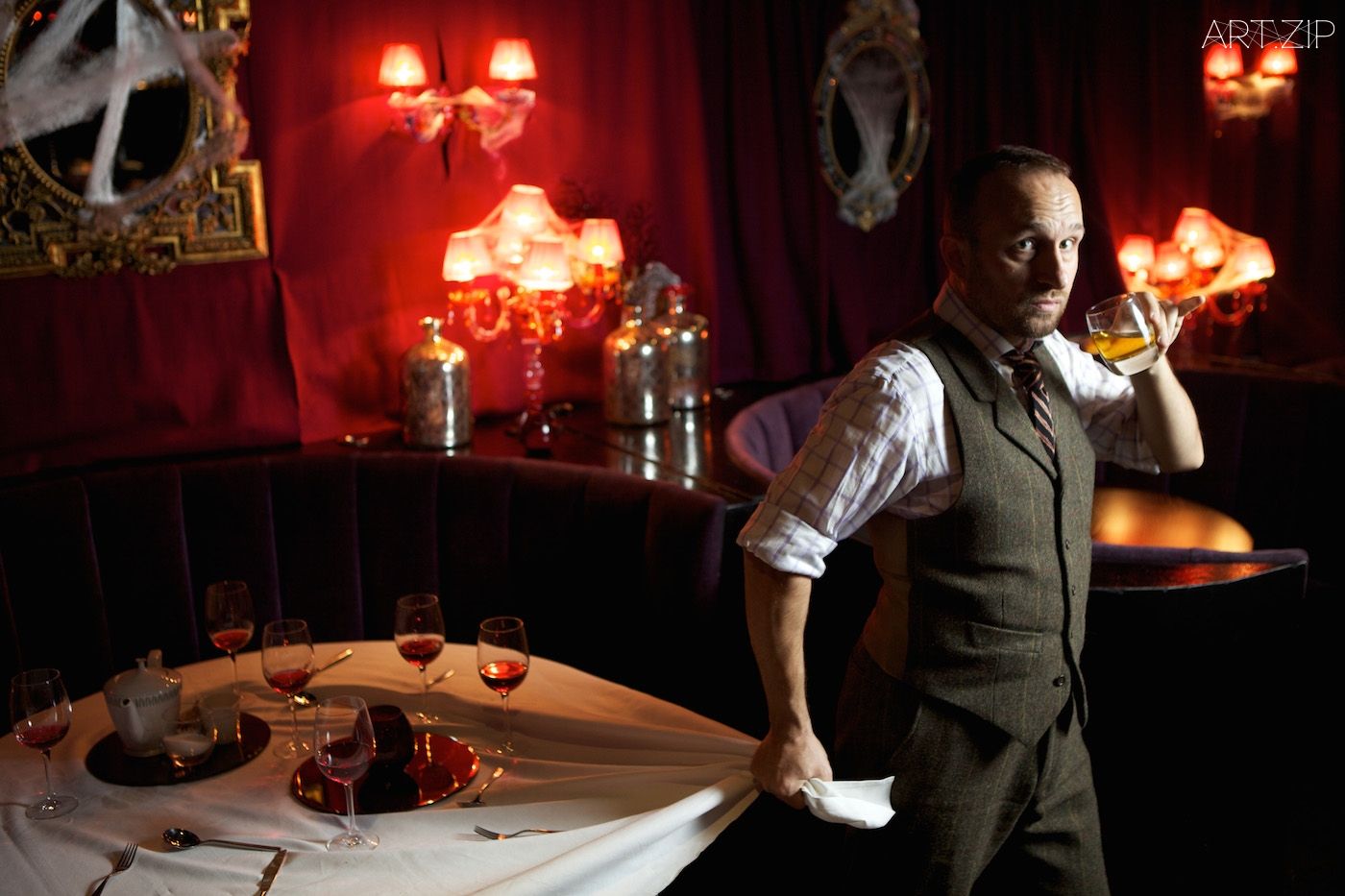 INTERVIEW
INTERVIEW
ART.ZIP: How do you come up with the idea of London Mime Festival? Is that related to your interest or experience?
JS: I was first an actor a long time ago, but it didn’t last for very long, then I wanted to go into management. I was the programme of the director of an arts centre in London called The Cockpit, and this was in the 1970s. It was a venue run by the Inner London Education Authority. In those days there was a lot of fringe theatre, more than there is now, but it was hard to get audiences. I knew some artists, not so much mimes, but they were clowns, performance artists who did interesting work without any words, and they used to come to my theatre, but it weren’t so successful, we didn’t get much of an audience but had more of an audience overseas. And there was a woman called Nola Rae, who I was very friendly with, she was a very great mime clown, and much better known on the continent, in Holland, France, Germany, than in England. And we thought if we made a festival of work like hers with other people as well this would attract publicity and we would get more audiences. We didn’t know so many people to approach, but we put an advert in The Stage, the theatre newspaper. We had twelve companies, all British, everybody had two nights at this little theatre with only 150 seats. Some shows were very good, some really quite bad. It was a great success, every night was full and it attracted a lot of newspaper coverage and achieved what we had set out to do. So we decided to do it again, only next time with some people from overseas. So from 1978, which was our second year, we have been an international festival, then the next year another theatre decided they wanted to be involved and very quickly lots different theatres in London expressed interest. It quite quickly became seven or eight theatres with an international programme, we were doing tours outside London and it was getting a bit out of control. So we pulled things back to the size it is now, manageable. People ask us why we don’t make it bigger, but the truth is that now the size is just right. If you were very enthusiastic or very crazy, you could see everything, and you can in our programme, you can see every show in the seventeen or eighteen day period. If we made it bigger, you would lose this and that, so I think you would probably lose something. So that’s its background. And it is quite an achievement to have something like this, which has been running for so long –it’s the longest running London festival by far. We have to reinvent ourselves every year – we missed out two years in the early days – and you have to start from scratch because people don’t remember you here. So it’s very important that it’s every year and very important that it works.
ART.ZIP: 倫敦默劇節的這個主意是怎樣產生的?這和您的個人背景,興趣和經歷有哪些關係嗎?
JS: 首先,很久很久以前,我曾經是一名演員,但是沒做多久。之後我希望能夠從事一些管理工作。於是後來我在倫敦的考克皮特(The Cockpit)劇場做節目編排和藝術總監。那是70年代(20世紀)的事情了。這家劇場是內倫敦教育局(Inner London Education Authority)下屬的四家劇場之一。在那個年代,小劇場非常多,甚至超過現在,但是觀眾情況卻不樂觀。我們曾邀請過一些小醜演員,或者是現場表演藝術家前來演出,但是當時並不很成功,因為沒有這樣的觀眾群。所以很多英國的視覺表演藝術家是?裡開花?外香,在外國更為知名。其中有一位藝術家叫諾拉·芮(Nola Rae),一位非常有才華的女啞劇演員,她在荷蘭、法國、芬蘭都比她在英國知名得多。所以我們決定專門為這樣的藝術家們做一次戲劇節,這樣也許能夠引起媒體和公眾的注意,從而吸引觀眾。但是我們不知道如何去邀請到這些藝術家,後來我們就找到《舞臺報(The Stage)》, 那份著名的戲劇類報紙,做了一個廣告。最終,我們邀請到了12個劇團,全部是英國劇團,在這個150座的劇場,每個戲演出兩天。一些戲不錯,另一些不怎?樣,但是結果很好。我們吸引了很多媒體關注,並且所有的演出票都售空了。我們兌現了我們的期待。於是我們決定第二年再來一次。第二年有了一些外國劇團的參與,於是,從1978年起,我們的戲劇節成為了國際性的。再後來一年,另外一家劇場參與了進來,很快的,倫敦有很多劇場都表現出他們的興趣。於是從十二個英國戲開始,我們成長為國際戲劇節,我們甚至還把戲帶到倫敦以外的英國其他各地。當時有一些失控。後來,我們很慎重地考慮過規模,這需要是一個可控制的規模。人們說,你們辦的很好很成功,為什?不要做大呢?其實你看現在,一年十七八天的戲劇節,如果你真的很感興趣或者很瘋狂,你是可以把所有的戲都看了的。我想這也是我們的初衷。我們很自豪,這是一種成就,我們運行了這?久,倫敦沒有其他一個藝術節有這?久的歷史。在最開始的階段,我們曾經錯過過兩年,一切都要重新開始。你知道觀眾們的記性很不好,所以每一年都要持續辦下去很重要,否則一旦錯過一次,就要重新開始。
ART.ZIP: It was a bit surprising the shows were all sold out at the very beginning.
JS: Absolutely. There are 15 million people in London, so it shouldn’t be hard to find 150 people, but of course it is. But it’s always been like this, a large proportion of our audience don’t really know what they’re coming to. I don’t mean that they’re stupid, but it’s impossible to describe our shows, it’s not like a play – you do Hamlet and everyone knows the story. We are putting on new work, visual work, with no text. We do our best to describe something honestly and attractively. But I think a large number of our audience want to take a risk, they think ‘that sounds interesting’, they want to go on this journey and are pleased that they have taken this risk. A lot of the time we have people come up to us and say “I was going to bring a friend but I said I was going to the Mime Festival and they heard ‘mime’ and didn’t come, but actually it was wonderful! I can’t describe it.” and the next time the person did come with them. The audience is adventurous. Everything is full all the time n. Our financial situation is precarious, we need to sell 90% of tickets to survive. But people are adventurous.
在倫敦,有差不多一千五百萬人口,似乎填滿一個150座的劇場並不是難事。然而並不是這樣。我並不是說觀眾愚蠢,但是很大一部分觀眾不知道要看什?。我們對於每個戲的介紹真的是一項很困難的工作,比方說到《哈姆雷特(Hamlet)》,大家都知道很清楚會看到什?,可是我們是演出創新作品,視覺作品,沒有語言的作品。我們只能盡力去描述,用誠懇和有吸引力的語言去描述。我想我們大多數的觀眾願意去冒這個風險。我們總聽到這樣一種說法,我很想帶一個朋友來,可是他(她)沒有來,他們說默劇也許不是他們喜歡的。可是如果他看過演出說,這個戲真的很棒,可是我無法形容,也許他的朋友們下次也會自己來試試看。不是每一次我們都能滿場,但是我們需要巨大的觀眾數量,因為我們需要票房的收入來維持運營。我們需要90%的上座率才能生存下去,但是所幸,人們對這個戲劇節很感興趣。
ART.ZIP: What did you expect to achieve at the beginning of the festival in comparison to now, do you see any difference?
JS: At the beginning we just had the ambition for that one year, it may be that the person that I started it with just wanted to further her own career! At the beginning of the festival we would have said to our audience, look we have a lot of this new work, it’s difficult to describe, but it’s very good and entertaining and serious as well – when you say mime, people think of Marcel Marceau, but when somebody says music or painter you can think of more than one composer or artist. The festival contains very little actual mime. Mime is more than that – it is used to describe visual theatre. When people think of mime, they think it’s not serious, just a series of sketches. The shows we put on have very serious themes, those are dealing with gripping themes which can express emotions eloquently without language – almost more eloquently. It’s not dance but it expresses its message without words. Our ambition now is very similar. It is to say this is valid and legitimate theatre, try something you would not otherwise see – because if it was not for our festival you might not see these shows in London.
ART.ZIP: 你們最開始的期待和現在取得的成就有什?區別?你們對於未來又怎樣的期待呢?
JS: 最開始的時候我們就是希望辦好那一年的。那位我們合作的藝術家諾拉也許最初只是希望這能對她的事業有所幫助。我們的目標是希望運轉下去,帶來賞心悅目、出色且嚴肅的藝術作品。我們稱呼它默劇節,但是你看不到傳統意義上的默劇,啞劇。提到繪畫,你絕不會一下就想到某一位畫家,一種畫法。所以對於默劇而言,我們也是希望用這個詞才形容視覺劇場,而不是單純一種演出方式。另外,觀眾們一提到默劇,小醜,雜技等,就會想到純粹的娛樂而非嚴肅作品。但是比如我們在皇家歌劇院小劇場一起看的那出《哈利肯(Harlekin)》就很嚴肅,同樣在那裡演出的《老國王(The Old King)》也是個非常嚴肅的作品。沒有語言的運用,但是同樣能非常有力地抒發情緒,例如舞蹈也是這樣。我們現在的目標和最初也是相似的,做出色的、不尋常的劇場。在我們提供的戲劇節平臺上有很多作品在其他地方是不可能被觀眾看到。
ART.ZIP: Do you feel any difficulties in bringing all those international works to London?
JS: Only financial. We travel a lot and we see lots of work. We bring shows that are available, affordable and stageable. I’ll explain the last two. Affordable – in some countries on the continent, some artists earn a great deal more. It’s not because the tickets cost more, it’s because theatres are subsidized in a different way. When we put on a show, the amount from the Arts Council and whatever we get from the box office has to pay for the whole thing. So companies do say ‘we have twenty people, we can’t afford to come for what you can pay us’, but mostly people see that it is important to play in London and get reviewed by important newspapers than to play in the middle of nowhere in Germany even though you are getting a bigger fee. But the third component, a very important one, is that lots of the work we see is not designed for formal theatre spaces like the ones we use. More and more on the continent, less so here, you see a performance in an old warehouse or factory and there are very few of these in London, at least at the moment. So some shows which we would really like to bring over, we can’t, because we don’t have an appropriate space, not in January at least though, you could do it in the summer. But having said that, we get most of the things we want to see, and the most difficult thing is trying to survive the financial reality of it.
ART.ZIP: 把國際作品帶到這裡來的困難有哪些?
JS: 其實主要是財政上的困難。為了選擇合適的節目,我們要看太多的作品了,但是選擇參展作品只有三個重要的原則,第一,劇團有合適的演出檔期;第二,演出費用不會太高;第三,可以在正規舞臺場地演出。第一點我就不用多解釋了。第二點,費用上,有一些國家的藝術家們可以獲得很高的演出報酬,這並不是因為演出的票價昂貴,而是政府有補貼。但是在英國,除了票房收入和英國藝術委員會的一小部分基金,就沒有什?費用了。但所幸對於很多劇團而言,他們很看重能來倫敦演出,因為他們在這個藝術節上能被最知名的大報劇評人看到。這遠比在什?不知名的什?德國小城演出重要多了,即使在那裡演出會有很好的收入。第三點,你們可能會發現,現在越來越多的演出都是在不尋常的場地,比如廢舊工廠、倉庫、公共汽車車廂等等。但是在倫敦,尤其是一月份的倫敦,這簡直不可能,夏天也許可以在室外或者什?空曠的地方,但是我們的藝術節是在一月,這個沒有辦法。但是無論如何,資金是最大的問題。
ART.ZIP: Do you personally view all these performances before bringing them to London?
JS: Oh yes. The only things that we haven’t seen (my colleague Helen and I, I mean) – usually we’ve both seen them. If we haven’t seen a work, it’s either because it’s brand new and we have commissioned it from a company we know, such as this year from Blind Summit – it wasn’t the best thing in the world but we know them very well, and we thought we’d ask after they had a big hit in the festival last year. So we hadn’t actually seen it – we saw some rehearsals of course, but we won’t have taken anything we hadn’t seen from an already created show, it’s too much of a risk. We took a survey a few years ago, and one question was ‘why do you come’, and the most common answer was that ‘because we trust the festival’, which is good. But if someone were to say ‘we saw this show and thought it was terrible’ and I hadn’t seen it, what could I say? It does happen, there are people who see a show they really don’t like, and because they feel very close to us, they will write. Not so often, but sometimes, I’ll get people saying they didn’t like something, and I will reply saying ‘this is why we chose it, for these reasons, it was good for this and that reason, and I did like it, but I’m sorry you had a disappointing evening.’
It’s useful if something goes to Edinburgh and is a big success, then there’s good word on it, and it has a name, and maybe it has some good reviews, but we don’t rely on Edinburgh at all. We travel in Europe and see things long before they get to Edinburgh, if they ever get to Edinburgh. There aren’t so many festivals like ours, there’s probably only one festival like ours, but we have a very good network. We’ll travel to Holland or Scandinavia to see one show if that’s worthwhile, and often that’s disappointing – it wasn’t what you thought it was or you can’t bring it over but it’s important.
I’ve been doing this a long time and I am still optimistic. There are some things I don’t want to go to and I’ll find someone who is in that country who I ask to go on my behalf. And if they then tell me it’s fantastic, then I will go. For every twenty shows you see, nineteen and a half are no good, or no good for us. You have to see an awful lot to get it down to a small number. If you’re running a curated festival, that’s what you have to do. If you’re running a more general festival like the Edinburgh festival with music, opera, theatre, then it’s sort of easier, you don’t have to listen to the Chicago Symphony Orchestra playing a Mozart piano concerto – first of all, you know they’re going to do it very well, especially if they’ve got a great conductor and soloist – and you can hear it on a recording. But you have to go and see the dancers or theatre, and if you say that one of your jobs is to bring new work and new experiences to people, then they have to have a very high quality. Not everyone has the same taste as I have, but the quality is high. That’s what we have to find and what we have to bring.
ART.ZIP: 你們是怎?發現和選拔這些作品的呢?
JS: 通常情況下,我和我的同事海倫(默劇節的另一位藝術總監)都必須都看過這些作品,但是有一種例外,比如說,這個作品是從沒有演出過的,但是來自於我們熟悉並且信任的劇團。例如,比如有一個作品《腦袋腦袋(Heads)》來自一家叫作盲頂(Blind Summit)的劇團,我們是到彩排的時候才看到作品的。去年的默劇節上,他們的作品《桌子(The Table)》大獲成功。雖然我不敢說這部新作是世界上最棒的作品,但是質量是有保障的。上一次我們看到他們的《桌子》中有三個部分,大家都最喜歡開始一個木偶在桌子上的那個部分,但是我對於後面的相框裡面飄動的頭的那一部分很感興趣,就問他們是不是願意發展成為一個獨立的作品。我覺得這也許和他們以往的創作方式不同,是在別人的建議下完成一個作品。
很多年前,我們曾經做過一個觀眾調查問卷,了解大家來這個戲劇節的原因,得到最多的答案是他們信任我們的選拔標準。就好像有人告訴我一個戲太差了,我沒有看過,我能和他一起抨擊那部戲嗎?這些年來,也有人給我們寫信,說某部作品讓人很失望,等等,我都會回復去解釋當初我們選擇這部作品的原因和意圖,但是如果我之前都沒有看過這部作品,我怎?去和觀眾們解釋呢?
愛丁堡邊緣戲劇節等這樣的戲劇節提供了一個很有幫助的選擇平臺,因為好的作品在那裡也許已經贏得了一些口碑,甚至是一些大報的劇評。但是我們不會依賴戲劇節。我們在世界各地選戲,很多外國作品如果能來愛丁堡,通常已經在很多歐洲大陸國家演出過。歐洲有一些類似我們性質的戲劇節,其實,也不過就一兩個,不過我們有很好的關係網。即使我們沒有太多的經費,但是我們也會為了別人推薦的一部戲,去德國,法國,或者是斯堪納維亞半島。我們覺得這是值得的。雖然有時候看到的作品可能不適合帶來演出或者不好,這會讓我們很失望,但是這些過程都是必須的。
我是個很挑剔的人,比如我認識的朋友和我介紹什?地方有一個戲不錯,我通常會去看,但是十有八九我不會選擇,但是選拔性質的藝術節就是這樣的。也許比較而言,一些其他類別的藝術節相對容易一些,比如說古典音樂,你不用去懷疑芝加哥交響樂團的演奏水平,而且你也可以聽錄音。但是舞蹈和戲劇就不一樣。尤其是你的工作是帶給別人新的作品或者體驗,就需要是質量很高的作品。但並不是說每個人都要和我一樣的品味,但是,戲的質量是一定的。所以我們需要對這個尋找的過程負責。
這個選擇的周期很長。我們目前已經定了一些我們明年會演出的作品,還有一些也需要安排到後年。例如古典音樂,你也許需要提前兩年預訂,或者歌劇的話甚至需要五年,因為那些明星們非常繁忙。戲劇的周期短很多。但是有時候有很多不可預知,比如說有人受傷了或者怎樣,很多最後一分鐘才發生的狀況。我們希望能提前一年或者兩年訂好名單,但是總有不可測的情況發生,所以我只能現在告訴你們我們希望演出的節目,而不是到時就能演出的。
ART.ZIP: How long does it take to initiate this lineup?
JS: A long time. We already know some things we would like to have next year and the year later. Whereas with classical music you have to book things two years ahead and with opera five years ahead, because the great stars are so busy. With theatre, things work with a much shorter time scale. Sometimes when we book something a long way ahead, something goes wrong six months beforehand. Often it’s the things you find at the very last minute that are actually the best. So we’d like to be able to plan a year, if not two years ahead, if we could but we can’t. I could tell you a couple of things we’d like to tell you we’d be having next year, but quite honestly I don’t know if we’ll be having them!
ART.ZIP: 舞蹈屬於默劇節所涵蓋的範疇嗎?
JS: 我很高興你們問到這個問題。其實一個舞蹈作品都沒有,第一是由於個人品味的原因,因為我們希望我們的戲劇節能劃出一個在舞蹈和話劇之間的領域。我們推廣沒有文字的存在的視覺劇場。另一方面,舞蹈的機會太多了,各種各樣的舞蹈藝術節,一直都有。我們不想做別人已經在做的。比如我們曾經的一個演出作品,《老國王(The Old King)》, 即使它是來自一個比利時當代舞團(Les ballets C de la B),但我們不認為那是舞蹈作品,或者說是在這個著名舞蹈劇團的名下,非常規概念下的舞蹈方式。這年頭什?都能叫作舞蹈,一個人在舞臺上講解如何訓練舞者,沒有音樂伴奏著移動也被當做舞蹈作品,我並不認同。
ART.ZIP: It seems there are very few dance pieces in the Mime Festival…
JS: Well again it’s personal taste, but I am glad you say that, that there are only a few as I’d like to hear you say that there was none. We don’t want any dance. The area of theatre that we occupy is between dance on one side and spoken drama on the other, in that territory and neither one nor the other. The reason for that is twofold – we are promoting visual theatre, we don’t want spoken text, and with dance there are so many opportunities in Sadler’s Wells, all kinds of dance festivals, so many opportunities happening all the time. We don’t want to tread on anybody else’s toes. But for instance, we have brought over The Old King – I don’t think that’s a dance performance at all, it may be under the umbrella of this famous Belgian company, but there’s a form of dance which most people wouldn’t recognize as being dance. Dance is interesting because these days dance is everything – someone standing onstage and talking about training as a dancer and moving without any music – some people think that’s dance, but I don’t.
ART.ZIP: 有關紀錄這些作品,你們是怎?做的呢?
JS: (指向背後的鐵卷櫃)三十年的東西,都在這裡了。我們的網站上只是一些很基本的信息。很多內容不能在上面呈現。也許這些資料有一天就要捐贈給哪個圖書館之類的。我們應該寫本書,其實早就應該了。你知道這樣的書並不會是暢銷書,所以需要籌錢來出版。應該是一本圖書,不過一些早期的作品,照片資料並不好,都是黑白的照片,質量也一般。你知道,如果一個劇團有足夠的遠見,資金或者公關能力,他們真的應該好好請人來紀錄他們的作品,比如排練啊等等的一切。而不是就僅僅是坐在劇場後面把影像記錄下來。但是很多演出的劇團規模很小,沒有能力,所以他們的媒體資料很有限。過去的十到十五年,我們有比以前好得多的資料。最開始的二十年東西真的不多。所以怎?去整理這些資料也是問題。處理不好也許會讓最開始的那些年的作品對比起來顯得沒有力度。不過很高興你們問到並註意到我們的資料記載。只有之前十年可以看到宣傳冊前,再往前就只有名稱。但是這個很重要,英國藝術委員會資助我們,也需要了解和紀錄我們成功的部分。海倫和我開始做這個戲劇節的時候還很年輕,我還不想停下來,還希望繼續做下去。如果別人接管了,還會一樣在意,做一樣的事情嗎。我覺得我們不幹了以後,要?這個節會是以一種很不一樣的方式進行,或者就幹脆停下來了。說不定別人就會開始做別的什?。我覺得就是應該按照他們自己的品味來做,和很多戲劇節不同,這個戲劇節非常個人化,海倫和我喜歡它,就做了,我們不會刻意地考慮這個戲是給這些觀眾的,那個是給那些觀眾的。很多劇場都很喜歡那種全家人一起看的戲,孩子們的戲,但是我們也許可以不一定非要這樣考慮。
ART.ZIP: The website is very nicely organized with an archive of old shows – it’s very simple and has all the shows.
JS: Thank you. Well unfortunately that’s it, that’s the archive, we must do something about it. The website is a very small distillation of it, obviously we have a record of the complete thirty-seven years we have been doing this and we’re not quite sure what to do with it. In the end you’ve got to take out the boring bits and give it to a library if anyone wants it. But we really should write a book –we’ve been meaning to but obviously if you’re not going to sell a lot of copies, you need to raise enough money to do it. It would need to be mostly photos, and funnily enough the photos from the earlier years aren’t very good. If a company has lots of money and has a good idea about PR, then they will get an actual photographer to take photographs of rehearsals and all sorts of things, not just somebody sitting there at the back of the theatre which never works. A lot of the companies we have found have been small scale, so the press material isn’t very good, but I think we’ve had far better press materials in the last fifteen years than the twenty which came before that. So it’s quite difficult to know how to organize this book so that it doesn’t make the early years look very underpowered. The website is the last ten years really. It’s important, I think, for if we stop – the Arts Council who have loyally funded us from the beginning are very interested to know about our policy for the succession, as Helen and I aren’t as young as we once were. I don’t want to stop the festival, I enjoy doing it, but would someone else taking over do the same thing? I don’t think so, they’d be mad to. When we finish, either the festival continues in a very different way, or it shouldn’t continue, and somebody should set something else up. Somebody should make it their own taste. Because unlike most festivals, it’s very personal for us. If Helen and I like it then we want to have it. We don’t feel we need to have a show for this bit of our audience or whatever, we don’t think like that. What all the theatres want is stuff for families and they ask us what we have for children. And well, you know, we haven’t.
ART.ZIP: 在過去的三十年,科技發展給視覺劇場帶來了哪些變化呢?
JS: 我覺得這是一個非常好的事情,你必須去吸引新的觀眾,不可能一直依仗一批觀眾。我覺得年輕一些的觀眾對於科技很感興趣。而且我覺得對於創作者而言,你必須盡力嘗試應用最新的各種手段。如果莫札特在創作他的音樂時,如果有電吉他存在,他可能也會嘗試應用在他的作品裡的。我們所有的演出作品中,都是為了創作需要來巧妙地應用現代科技的,而且都從中受益,無論是視頻、音頻等等這些現代手段,它們被應用得真的都很棒。
ART.ZIP: The music and lights were important, it’s really different from previous shows. We’re also curious, you use a lot of high technology in your shows over the last few years, is this a positive thing?
JS: Absolutely. I think you’re trying to attract a new audience all the time, you can’t rely on the same audience all the time, younger people are interested in this and I think that you should always use the most sophisticated, modern methods you can. I’m sure if the electric guitar was around when Mozart was writing music, then he would have written for the electric guitar, not for the harpsichord. I can’t think of any show which we’ve done with new technology that has not benefitted from it. You have to do something with it of course, but it’s so exciting.
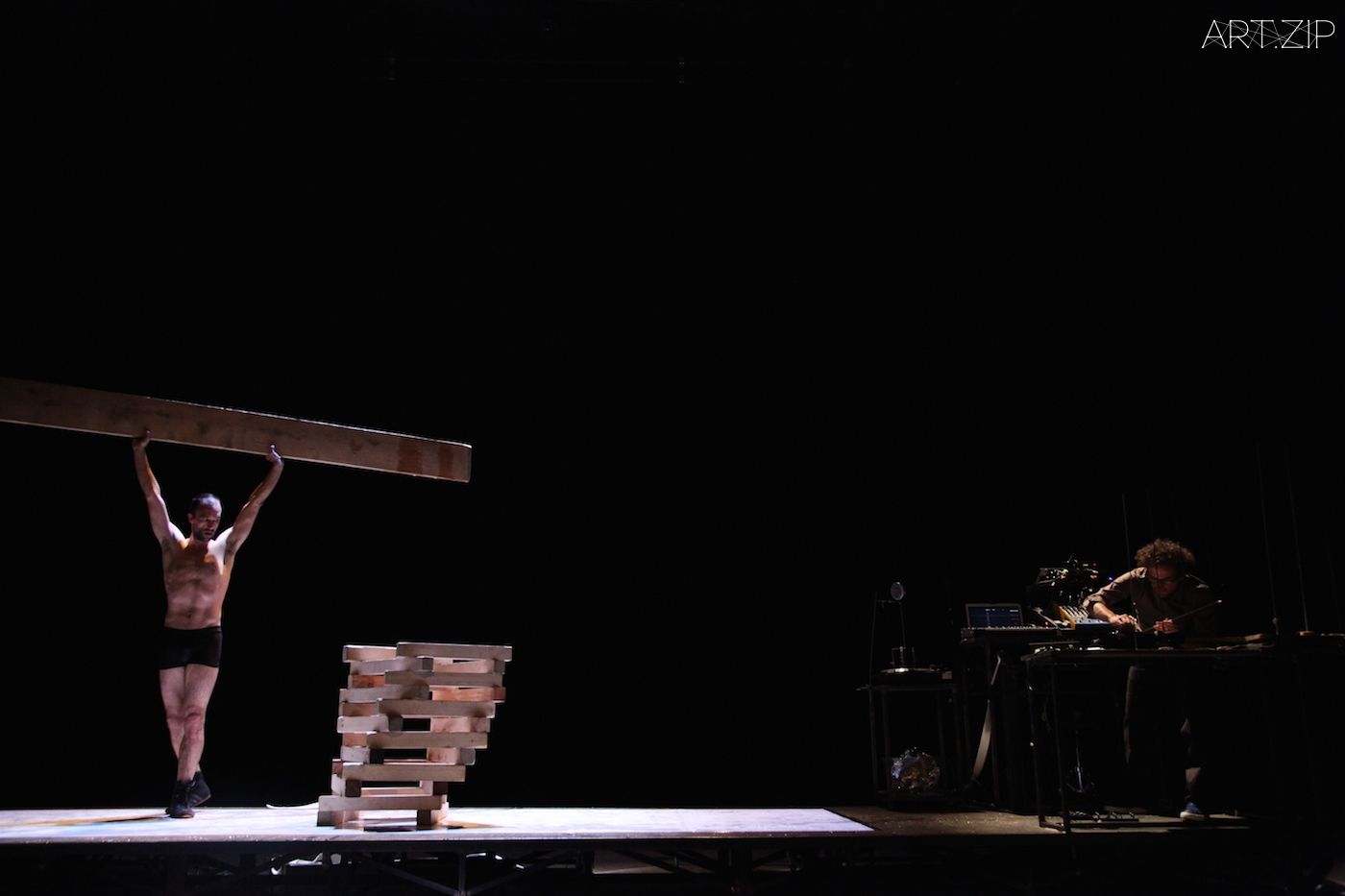
Lonely Circus, FALL, FELL, FALLEN 3 © Philippe Laurençon
ART.ZIP: People are proud of playwrighting in Britain, so I can interview audiences who are focused on the writing and the author. But in the Mime festival there is no script, right?
JS: No, almost never. But somebody conceived it – there’s no script, but it would say conceived and devised by whoever. There are people whose names are associated with and whose names are at the very top – Anton and DEREVO is one. The number of shows that are devised by six people – they’re few and far between. If you asked Mark Down from Blind Summit, he would say ‘I devise it’ or ‘Nick and I do’.
ART.ZIP: 我們很想了解默劇中沒有劇本,它們是怎?被創作出來的呢?
JS: 確實,這些作品可以說都沒有劇本。不過有很多是改編,或者說靈感來源於或者發展於一些劇作。很多劇團比如?安東尼(Anton Adasinsky)還有瑞士的那個齊默爾曼&德·佩羅特(Zimmermann & de Perrot)劇團等,都是他們劇團幾個人一同發展出來的一個作品。他們有很多演出的指示文字或者是舞臺管理性文字,因為很多作品都需要非常嚴謹地配合,那些天衣無縫的配合真的很棒。這些藝術家他們也許不是哈羅德·品特(Harold Pinter),但是他們同樣是戲劇的創作者。
ART.ZIP: Apart from the festivals, what are your leisure activities?
JS: I play a lot of sport, I know I look too old but I do! It’s a peculiar game, I play Fives, and it’s like squash without a racquet, like handball. We play it in a court, a court with three walls. But I am also chairman of a festival in Birmingham which specializes in experimental theatre, it’s called the BE Festival. They don’t actually pay anybody but each evening they have three short pieces, all below 30 minutes, and between the shows the audience has a meal together, about 150 people eating together and then you go back and see the next show. It’s very interesting, there’s nothing like this sort of model anywhere else in the country. So I have other jobs, I’m a director of a company which manages theatres outside London, I go to the cinema…I drink too much! I used to be out all the time because I was artistic director for some years of the Hong Kong Festival and then the New Zealand Festival. So I had to go to opera and concerts and do lots and it was great fun, but I had to be out almost every night seeing something and not just theatre. So it’s nice now not having to do much. I’d love to have lived in Paris or Madrid, but London is very special and I feel lucky to live here. England is suffering, but it’s still a very special place to be. But I’ve seen lots of different places. I would love to go to South America or China, but even if I did I’m sure I would still be happy to live in London, and I wouldn’t like to retire to a village, but I like the buzz. My wife loves the country and has a little place in Cornwall and it’s nice for the day but I would go mad if I had to live there.
ART.ZIP: 您的業余愛好是什么呢?
JS: 我雖然看上去很老了(笑)但是我很愛運動。我玩一種不是很常見的運動叫作Fives(Eton Fives,一種場地手球運動)。另外,我在另一個藝術節,伯明翰歐洲藝術節(BE Festvial),是一個實驗藝術節工作。每天晚上,有三個演出,每個都不超過30分鐘。在演出之間,觀眾們會一起進餐。大約150人,然後回來之後再看演出。我的意思是說除了這個默劇節,我還有很多工作。另外,就沒什?特別的了,我會去看電影,去酒館,我應該少喝點酒了(笑)。我以前經常到處跑,比如以前做香港藝術節的藝術總監,我也曾是新西蘭藝術節的藝術總監等,因此我去看很多演出,音樂會,歌劇等等,因此我每天晚上基本都要出去,但是不一定是看戲,也會是其他演出。我和我的妻子和孩子們生活得很開心。倫敦是很特別的城市,我很高興以前有機會在法國和西班牙生活,但是謝天謝地,我很幸運能生活在倫敦,盡管現在經濟不景氣,但是它還是很有魅力。因為工作原因我經常出差,去過很多地方。但是我沒有去過南美,我也沒有去過中國,希望有機會能去。但是無論哪裡,我想我最後還是最喜歡倫敦。我不會退休之後去個什?小鄉鎮生活,我的妻子熱愛自然。她在康沃爾有個房子,她有時會去那裡,安安靜靜寫些東西等。但是我不能在那裡長待,我不喜歡那樣的生活。我喜歡熱鬧。如果偶爾希望安靜,我會選擇待在家裡看看書什?的。
Find Out More: www.mimelondon.com

